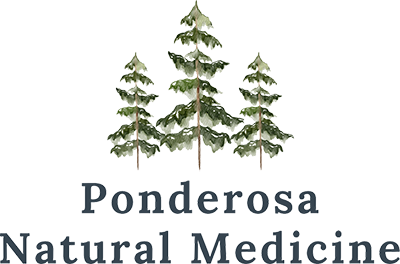As Winter approaches, there is considerably less hours of sunlight and the weather is more cold. People often spend most of the daylight hours at work. This combination can lead to symptoms of depression during these months. Season affective disorder is characterized by symptoms of depression that only occur during certain seasons (usually winter) and are relieved once the season change. Even if people do not meet the clinical guidelines of depression, they still may experience a negative change of mood in the winter months. However, once a person and their doctor identify this seasonal mood pattern simple measures can be taken to increase mood. These measures can help people live a happy life year round.
Light Therapy
Light therapy has been well documented to decrease symptoms of seasonal affective disorder. A inexpensive light box can be taken to work and used on their desk. This treatment is easy, affordable and effective. The merck manual recommends using a light intensity of 2,500 to 10,000 lux for 30-60 minutes per day (depending on light intensity) at a distance of 30-60 cm. Do not use this treatment for longer than recommended as overuse can cause headaches and fatigue. Most people report feeling energized and happier following light therapy.
St. John’s Wort (Hypericum Perforatum)
St. John’s Wort is herb that contains pores in the leaves that let sunlight through. This is a symbol for it’s use in seasonal depression as a mean of bringing light to dark days. St. John’s Wort has been widely studied for depression and seasonal depression. If one is prone to seasonal depression it is best to use this treatment one month prior to day-light savings time. The recommended dose according to the University of Maryland is 300 mg three times daily. This herb can interfere with medications, talk to your naturopathic doctor before use.
5-Hydrotryptophan (5-HTP)
5-HTP is an amino acid that is immediately converted to the neurotransmitters serotonin and melatonin. These neurotransmitters have many functions including promoting a happy mood, adequate sleep, and pain relief. The recommended dose according to the University of Maryland is 50 mg one to three times daily. Again, as with all physiologically active substances, this treatment can interfere with certain medications.
Negative Ionizer
Negative ions are found naturally in our environment, however, they tend to be low in cities and indoors. However, there are easy devices that can be bought that create negative ions, also himalayan lamps, and indoor water features. A study found that 30 minutes a day of high-density negative ion exposure over a 20-day period significantly decreased depressive symptoms. Symptoms that saw improvement were over-sleeping, over-eating and tiredness. 58% of people receiving this treatment were considered in remission from the syndrome. Other natural sources of negative ions are forests, and running water.
As with all mental health issues, a well balanced whole-foods plant-based diet is helpful to ensure the proper building blocks of neurotransmitters. Exercise has also been found to help with depressive symptoms. A way to combine these treatments is to plan weekly activities that ensure outdoor exercise in sunlight near a forest and running water. During the weekday, supplementing with the treatments mentioned above can be helpful.
A naturopathic doctor can help you with seasonal depressive disorder.
Call 720-722-0178 to schedule an appointment and be on your way to a happy winter.
References:
Byerley WF, et al. 5-Hydroxytryptophan: a review of its antidepressant efficacy and adverse effects. J Clin Psychopharmacol. 1987;7:127-137.
Flory, R., Ametepe, J., & Bowers, B. (2010). A randomized, placebo-controlled trial of bright light and high-density negative air ions for treatment of Seasonal Affective Disorder. Psychiatry research, 177(1), 101-108.
Martinez, B., et al. “Hypericum in the treatment of seasonal affective disorders.”Journal of geriatric psychiatry and neurology 7.1 (1994): S29-S33.
Terman, Michael, and Jiuan Su Terman. “Treatment of seasonal affective disorder with a high-output negative ionizer.” The Journal of Alternative and Complementary Medicine 1.1 (1995): 87-92.

